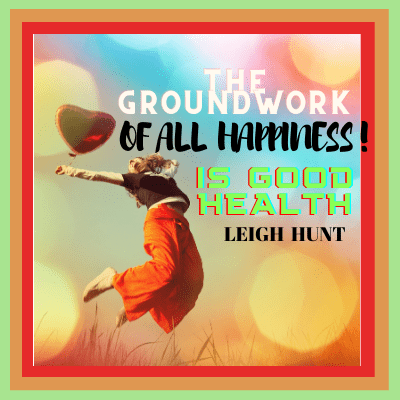Mental , Physical, emotional and spiritual health are deeply intertwined and have a profound effect on one another.
In this blog post I will be talking about how to balance mental, physical and emotional wellbeing.
When we know the cause of a problem ,then the solution has started.

Medicine upholds that we are victims attacked by bad organisms.
But the father of germ theory ,Pasteur began to understand the true relationship of germ to disease late in his life when he stated
” The germ is nothing, the soil (the condition of the body )is everything “.
Meaning that a germ can only thrive in a suitable environment.
God has written physical laws with his own hands upon every nerve ,every muscle and every organ in our bodies.
Every “thou shalt not” whether in physical or moral law contains or implies a promise..
Transgression of physical laws is the transgression of God’s law.
When we realize that disease is the transgression of God’s physical laws.
Which most times ,is out of ignorance, then we are on the right part to health.
THE RELATIONSHIP BETWEEN MENTAL, PHYSICAL EMOTIONAL AND SPIRITUAL WELLBEING,
There are six components of total wellness .And as I mentioned above they are all intertwined.
For instance when you are sad on the emotional level you then experience fatigue.
Apart from that you also loss energy and/or decreased appetite on the physical level.
At the same time on the spiritual level , you may feel out of touch with your true self
And perhaps disconnected from the Universe and the lord who created it..
Another clear example is when you feel lost and unbalanced spiritually.
This may cause you to be moody and discontent with life.
This may ultimately cause you to grow emotionally distant from your loved ones. And on the physical level, may experience stress or fatigue.
On the other hand, when we feel spiritually connected and fulfilled, everything in our life including physical and emotional pain, are easier to deal with.
We feel lighter and happier.
WHAT THEN IS SPIRITUAL HEALTH
There’s no denying it –
When we feel connected and balanced spiritually we feel better physically and emotionally.
Nourishing your spiritual self is as important as food, water and exercise.
Some people claim to experience complete healing from certain health conditions through a variety of spiritual methods.
But this doesn’t happen all that often!.
It’s important however to note that we aren’t talking about religion here.
Some people may find spiritual fulfillment in religion, but it is only one of many ways. Religion and spirituality are not one and the same.
Spiritual connection is about finding meaning and purpose in your life
Its about discovering who you truly are.
And connecting with the God that provides you with inner strength, comfort, hope and inner peace.
HOW TO IMPROVE SPIRITUAL HEALTH
Improving your spiritual health is very important for your total wellbeing.
Spiritual health is hidden.
But it is very important.
If I may say so,it is for me the very first health component to focus on.
Here is how I improve my spiritual health.
I create time to be still and listen.

I Tune into my inner voice and identify what makes me feel whole, alive and connected to the God of the Universe.
This is my spiritual food.
For example,
When do you feel most fulfilled and complete? What gives you inner peace, comfort, strength and harmony?
Your spiritual health, as well as your emotional and physical health, may be improved by cultivating more of those things .
Dont forget two very important attitudes ,
humor and gratitude in your life.
Remembering to appreciate the simple things in life and not taking yourself too seriously.
Once you identify your spiritual needs,try to nourish them on a regular basis.
Don’t ignore them or put them off.
If you neglect your spiritual health, then you become hungry and search for food in the wrong places
This is destructive and zaps you of your life sustaining energy.
Experiencing life completely and consciously, even in the midst of great pain and suffering, is the essence of spiritual health.
MENTAL EMOTIONAL HEALTH DEFINITION
According to Mental health.org,
“Mental health includes our emotional, psychological, and social well-being. It affects how we think, feel, and act. It also helps determine how we handle stress, relate to others, and make choices. Mental health is important at every stage of life, from childhood and adolescence through adulthood.
Over the course of your life, if you experience mental health problems, your thinking, mood, and behavior could be affected. Many factors contribute to mental health problems, including:
- Biological factors, such as genes or brain chemistry
- Life experiences, such as trauma or abuse
- Family history of mental health problems”
Mental or emotional health refers to your overall psychological well-being. It includes the way you feel about yourself, the quality of your relationships, and your ability to manage your feelings and deal with difficulties.

HOW CAN YOU IMPROVE EMOTIONAL AND MENTAL HEALTH
Improving your emotional and mental health helps you learn to be mentally healthy and happy.
Being emotionally and mentally healthy doesn’t mean never going through bad times.
Or even experiencing emotional problems.
We all go through disappointments, loss, and change.
And while these are normal parts of life, they can still cause sadness, anxiety, and stress.,
The difference is that people with good emotional health have an ability to bounce back from adversity, trauma, and stress.
This ability is called resilience.
People who are emotionally and mentally healthy can cope with difficult situations and still maintain a positive outlook.
They remain focused, flexible, and creative in bad times as well as good.
TIPS TO TACKLING EMOTIONAL AND MENTAL STRESS
One of the key factors in resilience is the ability to balance stress and your emotions.
The capacity to recognize your emotions and express them appropriately keeps you from depression, anxiety, or other negative mood states.
Another key factor is having a strong support network.
Having trusted people you can turn to for encouragement and support will boost your resilience .in tough times.
In order to maintain and strengthen your mental and emotional health, it’s important to pay attention to your own needs and feelings.
Don’t let stress and negative emotions build up.
Try to maintain a balance between your daily responsibilities and the things you enjoy.
If you take care of yourself, you’ll be better prepared to deal with challenges if and when they arise.
Taking care of yourself includes pursuing activities that naturally release endorphins and contribute to feeling good. In addition to physical exercise, endorphins are also naturally released when we:
- Do things that positively impact others. Being useful to others and being valued for what you do can help build self-esteem.
- Practice self-discipline. Self-control naturally leads to a sense of hopefulness and can help you overcome despair, helplessness, and other negative thoughts.
- Learn or discover new things. Think of it as “intellectual candy.” Try taking an adult education class, join a book club, visit a museum, learn a new language, or simply travel somewhere new.
- Enjoy the beauty of nature or art. Studies show that simply walking through a garden can lower blood pressure and reduce stress. The same goes for strolling through a park or an art gallery, hiking, admiring architecture, or sitting on a beach.
- Manage your stress levels. Stress takes a heavy toll on mental and emotional health, so it’s important to keep it under control. While not all stressors can be avoided, stress management strategies can help you bring things back into balance.
- Limit unhealthy mental habits like worrying. Try to avoid becoming absorbed by repetitive mental habits—
negative thoughts about yourself and the world that suck up time, drain your energy, and trigger feelings of anxiety, fear, and depression.
HOW TO BALANCE MENTAL AND EMOTIONAL HEALTH
People who are emotionally healthy are in control of their emotions and their behavior.
They are able to handle life’s challenges, build strong relationships, and recover from setbacks.
But just as it requires effort to build or maintain physical health, so it is with mental and emotional health.
Improving your emotional health can be a rewarding experience
Benefiting all aspects of your life including boosting your mood, building resilience, and adding to your overall enjoyment of life.
Good mental health isn’t just the absence of mental health problems.
Being mentally or emotionally healthy is much more than being free of depression, anxiety, or other psychological issues.
Mental and emotional health refers to the presence of positive characteristics.
Similarly, not feeling bad is not the same as feeling good. While some people may not have negative feelings, they still need to do things that make them feel positive in order to achieve mental and emotional health.
People who are mentally and emotionally healthy have:
- A sense of contentment.
- A zest for living and the ability to laugh and have fun.
- The ability to deal with stress and bounce back from adversity. You can get some tips from this stress management e-book
- A sense of meaning and purpose, in both their activities and their relationships.
- The flexibility to learn new things and adapt to change.
- A balance between work and play, rest and activity, etc.
- The ability to build and maintain fulfilling relationships.
- Self-confidence and high self-esteem.
CONCLUSION
These positive characteristics of mental and emotional health allow you to participate in life to the fullest extent possible through productive, meaningful activities and strong relationships. These positive characteristics also help you cope when faced with life’s challenges and stresses.
spiritual ,mental and emotional balance must be in place for the enjoyment of perfect health
Dont forget to follow me on pinterest for more tips




